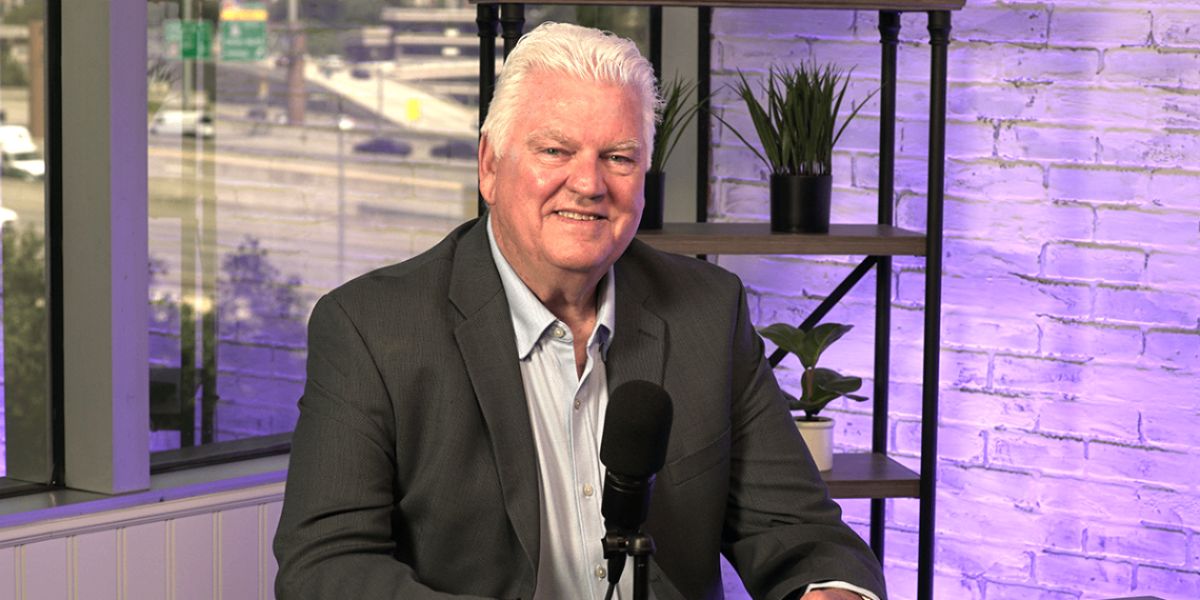By: Michael Beas
When CEOs hit a wall—cash flow chaos, scattered metrics, or a boardroom staring blankly at a P&L—Paul Whitley is often the first call. As a fractional CFO with over 30 years of experience steering companies through rapid growth, crisis pivots, and high-stakes exits, Whitley brings not just numbers—but clarity, strategy, and a rare brand of financial storytelling.
And for him, one truth stands above all: great businesses are built on simple, solid financial foundations—regardless of their size.
“Whether you’re pitching your first investor or prepping for a $500M sale, the fundamentals don’t change. What changes is how painfully obvious your financial gaps become as you grow,” says Whitley.
Seeing the Numbers Clearly—Then Moving Swiftly
Whitley compares his role to that of a financial optometrist: “I help CEOs see clearly—because blurry financials lead to blurry decisions.”
He builds dashboards that turn KPIs into direction. Because while numbers may not lie, they do need a translator. And CEOs, especially those without finance backgrounds, need more than data—they need insight.
“Your P&L should tell a story. It should support your vision and strategy,” he explains. “If it doesn’t, it’s just noise.”
From Gut Feel to Predictable Growth
Whitley’s approach fuses narrative with precision. It’s not just about having accurate books—it’s about aligning those books with your goals. That alignment creates what he calls “strategic resonance.”
For a high-growth SaaS firm, Whitley restructured the company’s unit economics to support a Series B raise. The clarity of their financial story impressed investors and brought in fresh capital. “It wasn’t magic,” he says. “It was alignment.”
He’s blunt about cash, too: “Revenue is vanity if you can’t make payroll.” That’s why he builds rolling 13-week cash flow models—tools that not only stabilize companies, but also boost their valuation.
“You can pivot from losses. You can’t pivot from zero cash in the bank,” Whitley says.
Designing Scalable Infrastructure
At the heart of Whitley’s work is infrastructure: the tech stack, systems, and workflows that support scale. “If your accounting team is drowning in spreadsheets, your growth will drown with it,” he warns.
He takes a surgical approach to diagnosing financial systems, whether it’s untimely reconciliations or lagging reports. For one SaaS client, he led a NetSuite ERP implementation that cut reporting lag by nearly a month and gave leadership access to real-time data. Productivity surged.
And while many fear “enterprise-grade” expenses, Whitley insists: “You don’t need SAP. You need clarity.” He custom-fits systems—like QuickBooks, Adaptive Insights, or AI-powered planning tools—to the size and complexity of each company.
One standout project involved integrating inventory planning software that shaved 20% off carrying costs. “Tech should serve strategy, not distract from it,” he notes.
The Cost of Sloppy Books Before a Sale
When a company is gearing up for acquisition, Whitley often gets the panicked call. And the first thing he checks? The books.
“You’d never sell your house without staging it. Why sell your business with a messy chart of accounts?”
In one case, a $50M firm nearly lost a deal due to legacy tax issues. Whitley’s forensic accounting saved the transaction. His “Superhero Fix-It Framework” includes auditing financials, crafting an investor narrative, and ensuring systems are clean, cohesive, and credible.
He recalls consolidating four separate P&Ls into one unified model for a multi-entity company.
From Coffee Chats to CEO Talks
Whitley’s impact extends beyond boardrooms. He’s the founder and host of CEO Talks, a podcast and YouTube series born from his desire to hear—and share—honest, tactical leadership conversations. With zero fluff and plenty of strategy, episodes dive into EOS implementations, affiliate revenue models, budgeting hacks, and cash flow tips.
Today, CEO Talks includes virtual workshops, in-person events with lake views, and a growing C-Suite Support Council—an invitation-only peer group for founders and execs who want ongoing strategic guidance.
The goal? Build a go-to resource hub for real-time business decisions.
Culture with Grit and Grace
At C-Suite Support, the firm Whitley leads, culture is more than a buzzword. “We’re Kingdom-minded and results-driven,” he says. “We don’t just advise—we implement.”
Their approach blends faith, financial rigor, and fearless coaching. They leverage EOS, AI, and a healthy dose of real-world grit. Whitley’s team is picky about who they work with.
“If a leadership team isn’t ready to change, we walk away,” he says. “But for the right client? We’re game-changers.”
In two years alone, they’ve helped over 50 companies optimize operations, clean up chaos, and get investment-ready.
Who He Helps
Whitley’s Rolodex is as diverse as it is impressive. He’s worked with:
- Oil & Energy: Managing capital cycles and compliance.
- Construction: Simplifying bids, WIP models, and chaos.
- SaaS & Services: Scaling ARR, reducing churn, and refining unit economics.
- Manufacturing & CPG: Streamlining inventory, improving vendor terms, and optimizing SKU portfolios.
Whether you’re prepping for hypergrowth or just trying to clean up the books, Whitley’s message is clear: You don’t need perfection. You just need a plan—and a CFO who’s done it before.
“Messy, misaligned, misunderstood? I’ve seen it all. And I’ve helped worse,” Whitley says with a grin. “Let’s get started.”
Disclaimer: The insights and examples provided in this article are for informational purposes only and reflect general business and financial strategies. Results may vary depending on specific circumstances. This content does not constitute financial, legal, or investment advice. Readers are encouraged to consult with qualified professionals before making decisions based on the information presented.









